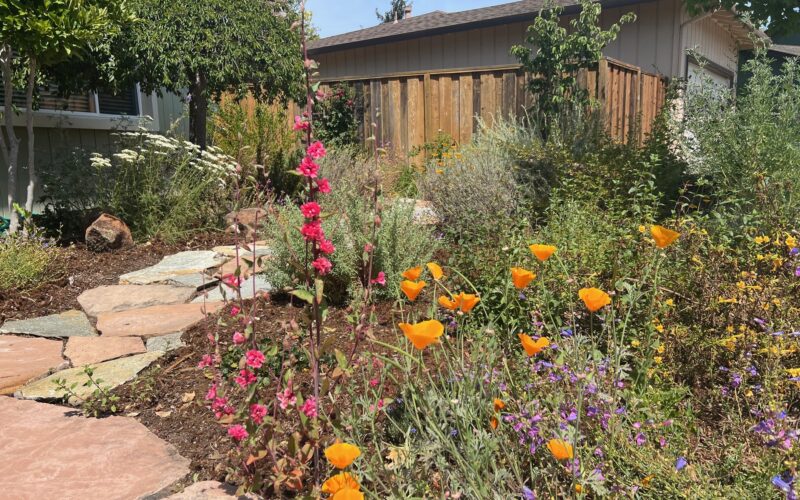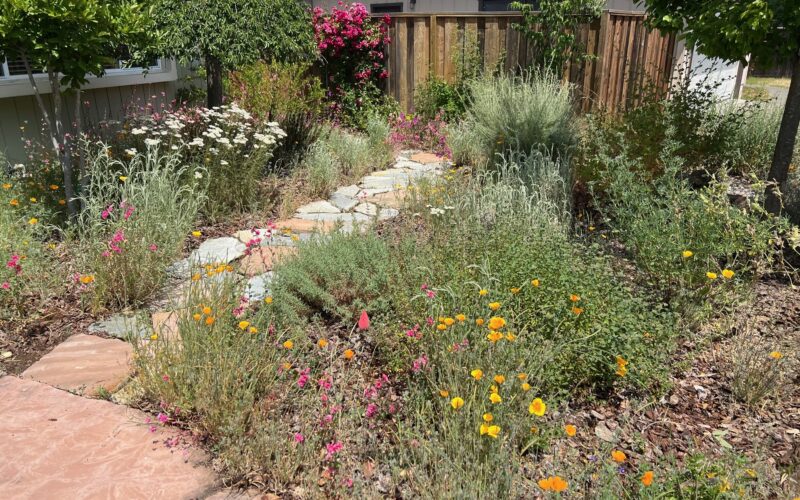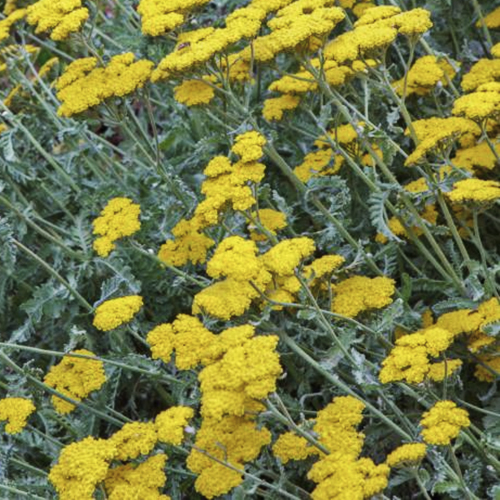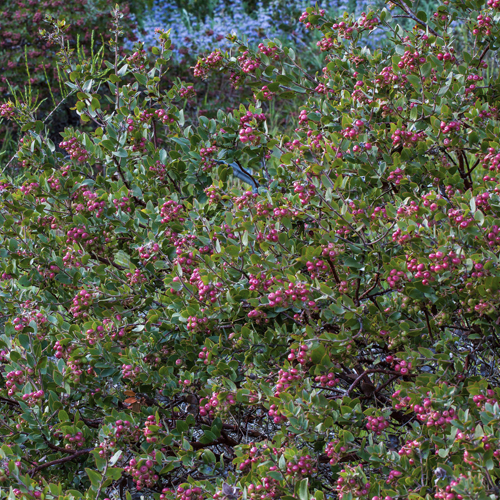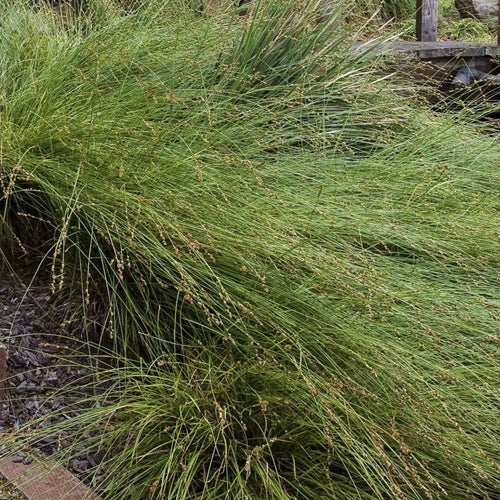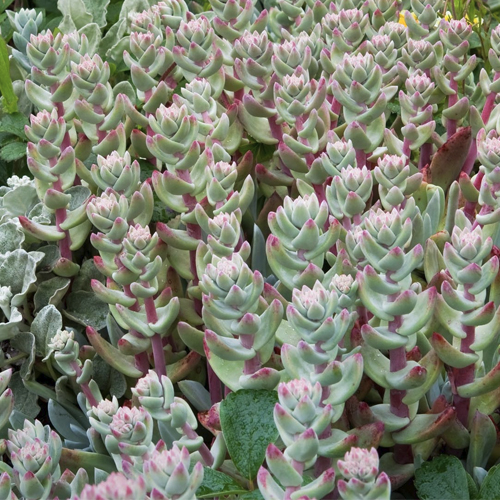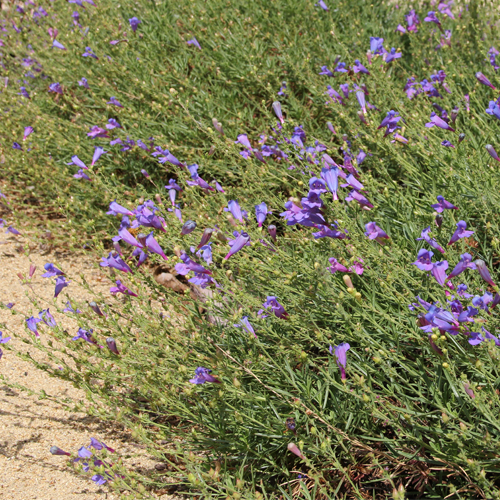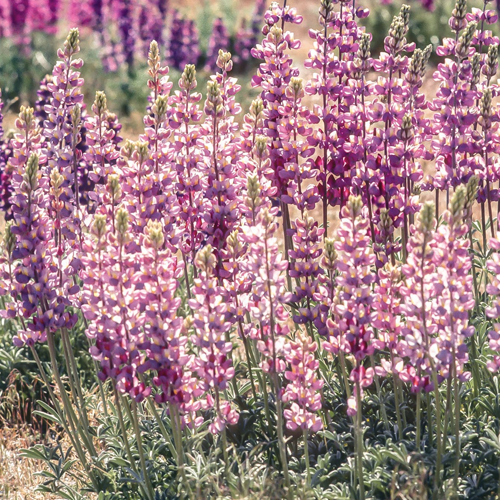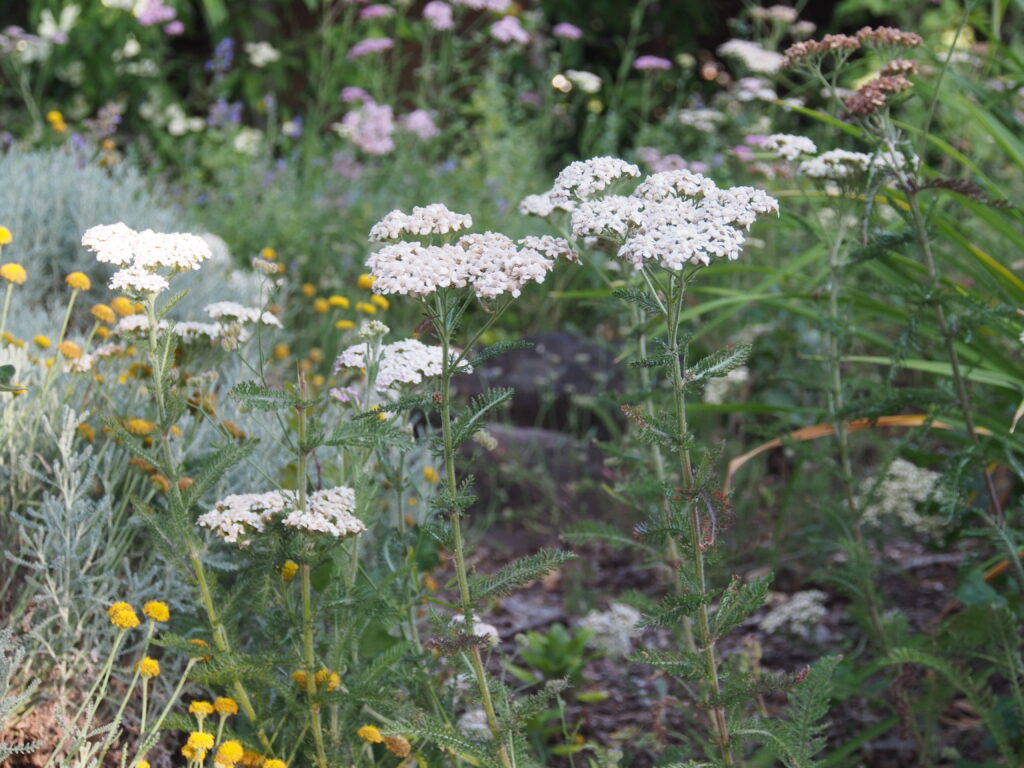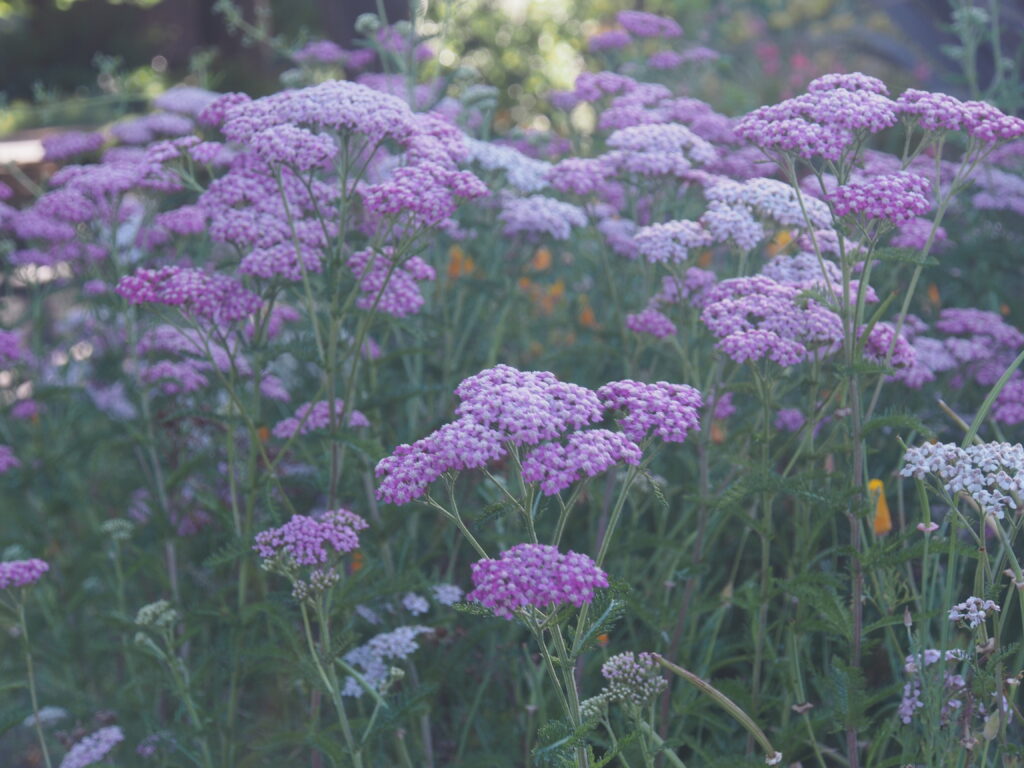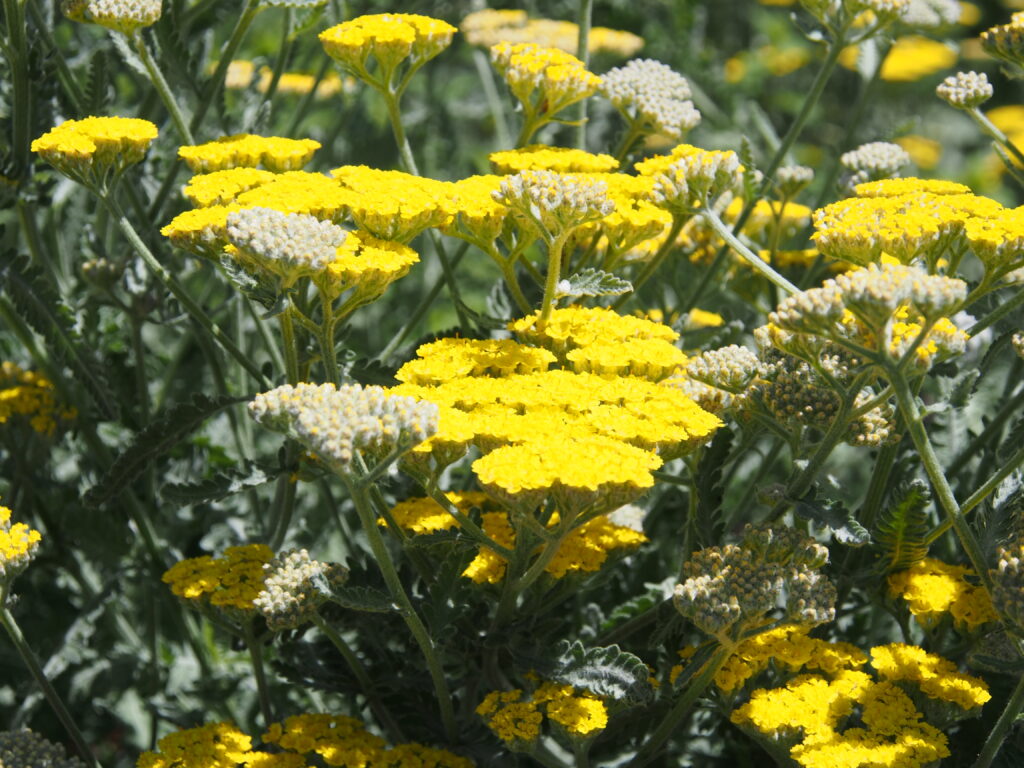Ann’s Native Habitat Garden
BACK TO FULL TOUR
Garden Features
Drought Tolerant
California Natives
Deer Resistant
Pesticide Free
Rainwater Harvesting System
Rain Garden
Lawn-Free Landscaping
Wildlife Habitat
Partner: Santa Rosa Water
This unique garden is an example of how even an urban yard can be transformed into thriving biodiverse native habitat. The yards were previously standard non-native ornamental landscapes that didn’t support local wildlife that depend on California native plants. The project, designed and implemented by West Coast Wild Ecological Restoration, reimagined the front, side, and backyards, replacing more water-intensive ornamental plants with locally sourced, drought-tolerant native species adapted to our region’s climate and providing habitat and food sources for a diversity of insects and wildlife.
The restoration design emphasized plant diversity and minimal outside inputs and management. No soil amendments or fertilizers were used; instead, the garden relied on the inherent strength of native plants. During the first year, plants were hand-watered which both replicated deep infrequent watering preferred by native plants, as well as fostered a connection between the owner and the plants. The garden showcases a remarkable diversity with over 60 different native plant species in a variety of microhabitats that range from full sun to full shade. A few original non-native trees and shrubs were preserved to provide vertical structure and maintain habitat diversity. Bird feeders, baths and houses are installed throughout the yards to further support local bird species. A lawn-free design significantly reduces water consumption, while a small stone bioswale captures stormwater, reducing runoff and recharging groundwater. The owner has also installed a full rainwater harvesting system for the house that collects rainfall for reuse, further minimizing reliance on municipal water. This pesticide-free sanctuary not only supports pollinators, birds, and other wildlife but also demonstrates how thoughtful landscaping can contribute to broader ecological health. Whether you’re drawn to its colorful blooms, the gentle hum of pollinators, or the ingenuity of its design, this garden inspires a harmonious relationship between people, plants, and place.
This garden was designed by West Coast Wild Ecological Restoration. Come say hi to them at this wonderfully designed garden!
Special Events
